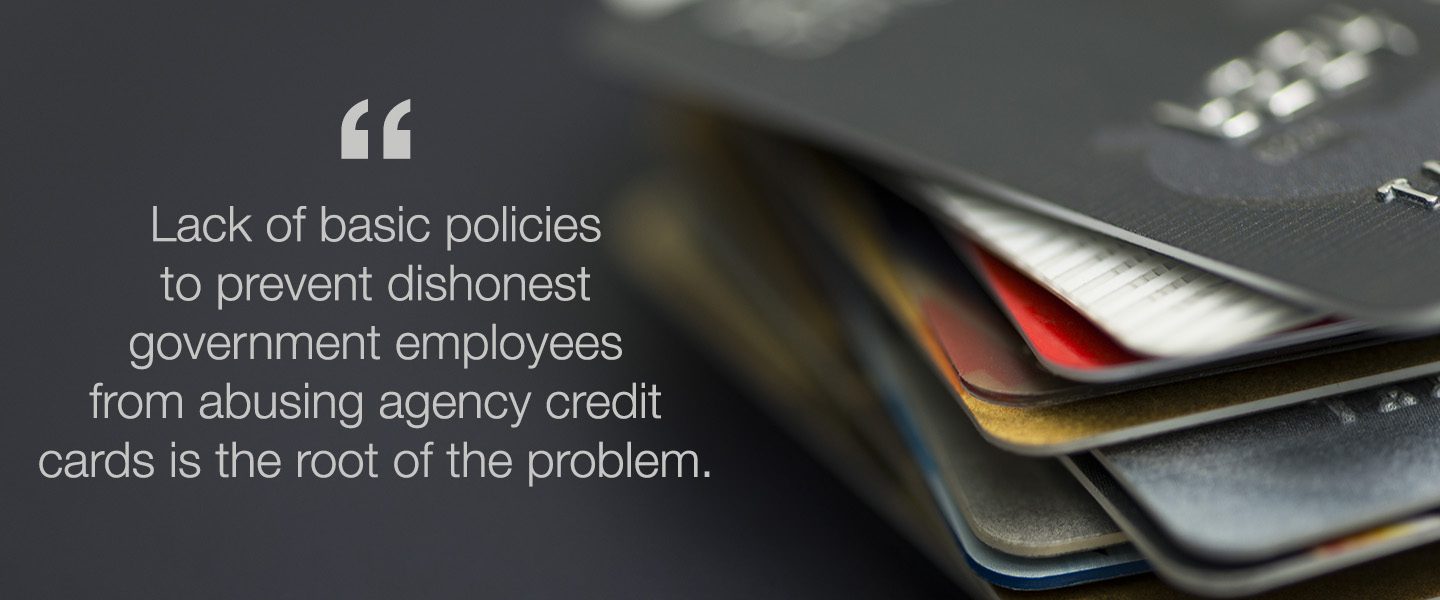Kasich Signs New House Bill To Protect Ohio’s Tax Dollars
A new law went into effect on Aug. 2, when Gov. John Kasich signed a bill aimed at reducing credit card* abuse in Ohio’s local governments. House Bill 312 establishes safeguards geared toward protecting government credit cards. The next step is for local governments and schools to enact these new credit card policies, which specify how agency credit cards can be used and who can use them (except for counties).
This new law comes as a result of an increase in fraudulent spending of public funds via credit cards. A report issued in July 2017, by State Auditor Dave Yost showed that more than $1.2 million on Ohio government credit cards was either stolen or misspent since 2011. In fact, one small village allowed its administrator to charge more than $700,000 in personal items. It appears as though lack of basic policies to prevent dishonest government employees from abusing agency credit cards is the root of the problem.

Read Also: Build Up Your Organization’s Resistance To Fraud
House Bill 312 establishes general procedures and requirements that attempt to hold political subdivisions accountable for misuse, as well as the actual credit card users. The bill includes certain provisions:
- The use of debit cards is banned, except for certain law-enforcement purposes and grant-related activities (counties must adhere to this as well).
- Formal credit card policies must be created that provide guidance on credit limits, reissue periods and the number of cards that can be in use at any given time.
- There will be quarterly reviews of credit spending and reporting to the Auditor of State.
- All entities must report the benefits and rewards received as a result of their credit card use to the legislative authority.
- The political subdivision must appear on each card and check related to its account.
- If the fiscal officer does not retain general possession and control of the cards, a compliance officer will be appointed. The compliance officer authorizes others to use the account and does not use the card except in rare circumstances. The fiscal officer is not eligible to be appointed as compliance officer.
- This bill emphasizes the liability of an officer or employee for not providing itemized receipts in accordance with the policy in the absence of any official bond.
Policies must be adopted within three months of the effective date of the bill and must include:
- Identification of all authorized users.
- Authorized types of credit card expenses must be listed.
- The procedure for acquisition, use and management of a credit card account and presentation instruments related to the account including cards and checks.
- The method for submitting itemized receipts to the fiscal officer.
- The procedure for credit card issuance, credit card reissuance, credit card cancellation and the process for reporting lost or stolen credit cards.
- The political subdivision’s credit card account’s maximum credit limit or limits.
- The actions or omissions by an officer or employee that qualify as misuse of a credit card account, which include expenses beyond those authorized in the policy
Potential Impact
Even though your entity may already have written policies and procedures in place with regard to credit card use, it is important to review your policies regularly. You should also make a point to review your policies now to ensure that they comply with HB 312. The implementation of these requirements is likely to lead to an increase in the number of findings for recovery against users who misuse the cards or do not provide itemized receipts for purchases.
*For this purpose, the term “credit card” includes more than standard bank credit cards, such as any card account from a store or financial institution that allows the holder to purchase goods or services on credit as well as any debit or gift card account related to the receipt of grant moneys. Not included are procurement card accounts, gasoline or telephone credit card accounts and the like.
By: Jennifer Kasserman, CPA (New Philadelphia office)
Looking for more tips to help you protect your entity from fraudulent behavior? Check out these articles:
Government Entities Are Not Immune To Cybercrime
Uniform Grant Guidance: What All Government Entities Need To Know
How Can Centralized Receiving Improve Your Internal Controls?
